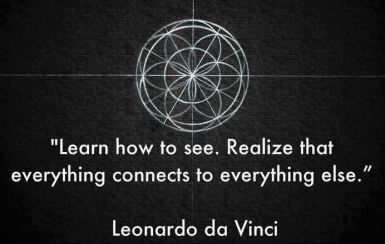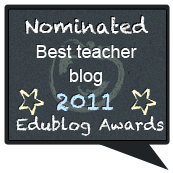This is my Task 1 post for Connected Courses Unit 1: ‘Why we need a why’ which will be added to the collection here.
Why do I teach?
Well, for starters, most people wouldn’t think that I do teach.
“What do you teach?”
“Well, actually, I’m a teacher librarian”.
“Oh, so you’re in the library”.
(Here we go again…)”Well, I’m not always in the library. And although I’m not a classroom teacher, I am a teacher but my role is very diverse”.
“So you take library lessons…”
(Ugh! Library lessons….) “No, I’m lucky to be able to support teaching and learning in a lot of different ways. I teach skills – information literacy skills, digital skills, critical thinking skills -”
“Aha… “(blank face)
Me thinking: Forget it.
So even before I answer the question “Why do I teach”, I should preface this with a deconstruction of ‘teaching’. Why does it have to be limited to teaching ‘subjects’ – content? Why does it have to be based on specific disciplines? Surely it’s not all about standing at the front of the classroom and commanding authority, of pouring information into students, and covering curriculum. Why are you not considered a teacher unless you are swamped with marking, exhausted by writing reports? Truly, it seems that being deflated by these things is what proves you’re a ‘real teacher’.
What about learning itself? What about the skills in between the subject content? Collaborating with teachers and co-teaching – filling in each others’ gaps? Having the time to think about authentic differentiation? Thinking about thinking. Playing around with social media platforms and authentic audience, encouraging peer feedback, asking the hard questions about the credibility of online information – isn’t all this teaching?
I used to teach English, German and French, and some Russian, and in the last 8 years I changed my teaching role to that of teacher librarian – school librarian or library media specialist in some countries. It seems that the role is so elusive that it’s not consistently defined.
So, why do I teach? What I love about being a teacher librarian is that there is so much freedom in the role, and so many opportunities to learn, to share learning, and to explore different ways of sharing ideas and information. I realise that I love teaching when I have the opportunity to keep learning especially from others, and when I’m a part of students’ learning. And although I’m very busy because I’m coming from so many different directions, I don’t have the weariness of subject teachers under the pressure of an ever expanding curriculum and brain numbing paper work (my impression only). I get to relate to students of all year levels regardless of their subject choices and I am privileged to be able to focus on learning itself while supporting teachers and students.
When my first born son was in preschool he was a questioning force to be reckoned with. His passion for learning was so wonderful to behold, and such a contrast to much of the disengagement I’d seen in teenagers at school, that I started thinking about how I could preserve his sense of wonder and thirst for learning. There is no simple answer to this, and although Montessori helped in the preschool and very early primary school years, going back into mainstream education as a very bright child was not the most positive experience, and almost damaging in some ways – certainly in a personal and social sense. A primary school psychologist told him to ‘dumb down’ so that he would fit in, and I’m sure he is not alone in following that inevitable path to becoming a less switched on student so that he didn’t stand out. I don’t like to think about how unhappy he must have been. In later secondary years, and also in early tertiary (he is now in second year Masters), the passion to learn came not from school/University but recreational time, and my perception is that he kept himself ‘sane’ by following personal interests – thanks to the internet. Interestingly, his Arts degree (Politics and Psychology) morphed into a Masters Degree in Urban Planning – his formal education finally matching his personal interests.
So back to the question: Why I teach?
I think that people who love teaching love learning. I love being in the business of learning – my own learning; supporting the learning of students, supporting teachers in their role as learning facilitators. Being in the company of people sharing ideas, creativity, and debate. My role in supporting teaching and learning is very fulfilling. Usually I have the satisfaction of knowing that I’m essential to the classroom teaching going on in the school. Occasionally I’m disheartened by teachers who tell me they have everything they need in order to teach their subject, thank you very much. The teachers I see engaging students are the ones who love learning and are always looking for new ways to teach.
I think that learning is not always easy, and that lifelong learning really needs to be taught, or rather, practised. The learning process should be the focus at least as much as the content, if not more. The process should be made transparent to enable shared metacognition. I’m concerned that we are failing our students in terms of teaching them how to learn. Some are better at working this out for themselves than others. Without this support, many students will lose their self confidence and turn away from learning. I hope to play a small role in preventing this from happening in my school. My hope is that I help students to embrace learning, to learn from and with others, to never be afraid to admit they’re lost or confused, to learn the resilience and discipline they will need to keep learning in their careers and in life.
Task 2
#WhyITeach because I love to be part of the discussions about how and why http://t.co/bA6Ak01Pci #ccourses
— Tania Sheko (@taniatorikova) September 17, 2014
Twitter url: https://twitter.com/taniatorikova/status/512044226155397120




